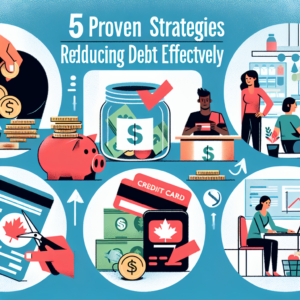In today’s complex financial landscape, many individuals and businesses find themselves grappling with overwhelming debt. As mounting bills and financial obligations lead to stress and anxiety, the risk of bankruptcy looms larger than ever. However, the Credit Debt Relief Agency (CDRA) offers innovative solutions designed to help debtors navigate their financial challenges without resorting to bankruptcy. This article explores the pivotal role of CDRA in debt management and proposes effective strategies to avoid bankruptcy through its services.
Understanding CDRA’s Role in Debt Management Solutions
The Credit Debt Relief Agency (CDRA) is a specialized organization that provides comprehensive assistance to individuals and businesses struggling with debt. By acting as an intermediary between debtors and creditors, CDRA helps negotiate favorable terms that can alleviate financial burdens. The agency employs a team of financial experts who assess a debtor’s unique situation and create tailored debt relief plans. These plans may include debt consolidation, negotiation for reduced settlements, or the restructuring of payment plans.
One of the fundamental roles of CDRA is to educate clients on their rights and available options. Through informative consultations, the agency empowers debtors to make informed decisions that can lead to more sustainable financial health. By understanding the implications of bankruptcy and the various alternatives available, clients are better equipped to navigate their financial dilemmas. This educational approach not only fosters client confidence but also encourages proactive engagement in their financial recovery process.
Moreover, the CDRA plays a vital role in maintaining communication with creditors, which can often be a significant source of stress for debtors. By taking on this responsibility, the agency allows clients to focus on their financial recovery without the anxiety of constant creditor contact. The negotiation strategies employed by CDRA often result in reduced interest rates, extended repayment timelines, or even debt forgiveness, all of which can substantially improve a client’s financial situation.
Effective Strategies to Avoid Bankruptcy Through CDRA
To avoid the dire consequences of bankruptcy, clients can leverage several effective strategies facilitated by CDRA. One of the most prominent strategies is debt consolidation, where multiple debts are combined into a single, more manageable loan. This approach not only simplifies the repayment process but often results in lower overall interest rates. CDRA guides clients through this process, helping them identify the best consolidation options that align with their financial capabilities.
Another effective strategy is the negotiation of settlements with creditors. CDRA’s experienced representatives work diligently to negotiate reduced settlement amounts that can significantly decrease the total debt owed. This strategy can be particularly beneficial for individuals facing financial hardship, as it allows them to pay off debts for less than what they owe, effectively preventing bankruptcy. The agency’s negotiation tactics and established relationships with creditors often lead to favorable outcomes that clients may not achieve on their own.
Lastly, creating a personalized budget is essential for clients seeking to avoid bankruptcy. CDRA provides clients with budgeting tools and financial planning resources to help them understand their cash flow and prioritize expenses. By establishing a realistic budget, clients can allocate funds more effectively, ensuring that they meet their debt obligations while also addressing essential living costs. This proactive approach fosters a sense of financial control, enabling clients to make steady progress towards debt elimination without resorting to bankruptcy.
Navigating debt can be an overwhelming experience, but organizations like the Credit Debt Relief Agency offer valuable support and resources to help individuals and businesses avoid bankruptcy. By understanding the role of CDRA in debt management and employing effective strategies such as debt consolidation, settlement negotiation, and personalized budgeting, clients can regain their financial footing. With the right guidance and proactive measures, achieving financial stability is not only possible but also attainable, allowing individuals to focus on rebuilding and thriving in their economic endeavors.



